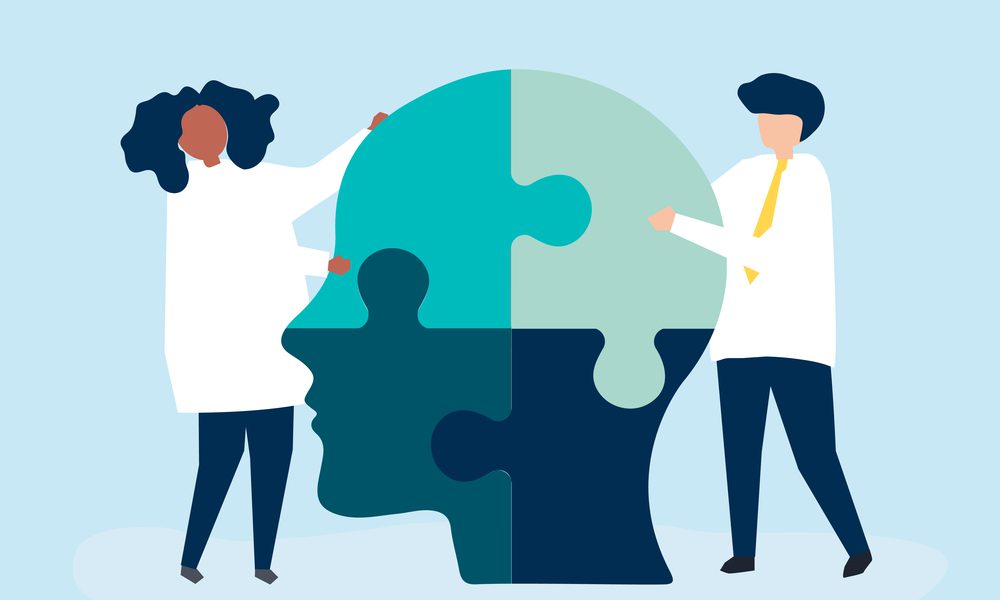Why HR should stop talking about mental health and act
- 7 Min Read
“Now more than ever we need mental health strategies that really work and work quickly.” Dr. Alan Watkins, physician, psychologist, immunologist and co-author of ‘HR (R)Evolution: Change The Workplace, Change The World’, takes HR leaders to task on dealing with mental health and lights a path to a brighter future for mental health in the workplace.
- Author: Dr. Alan Watkins
- Date published: May 27, 2020
- Categories

COVID-19 is just the latest in a long line of ‘wicked problems’ that humanity is having to face. Just prior to the pandemic emerging in Wuhan we were worrying about Australia burning and Indonesia flooding. All of that was on top of years of political chaos with Brexit delays and disputes. And then there were global city shutdowns as the extinction rebellion movement warned humanity that the clock was ticking, and climate change would kill us all.
Given all this it is hard not to feel overwhelmed and caught up in the panic, fear and anxiety that is sweeping the world. When so many people are frightened for their lives, and the lives of their loved ones and concerned about the looming wave of COVID-induced job losses, business bankruptcies, impending poverty and sustained health issues it is hardly surprising that we are in the middle of a ‘mental health’ epidemic which even seems to have attracted royal sponsorship.
The stats make sobering reading. In 2017, female suicide rates were at their highest in decades[1] and a quarter of young men said they had intentionally harmed themselves[2].
Clearly people’s struggles are not just a work issue, but organisations have both a moral and a legal responsibility to protect their staff from stress[3]. If organisations help their employees cope more effectively their people will perform better generating more revenue in addition to the cost savings of fewer days off sick[4].
Not surprisingly organisational spend on wellbeing is increasing rapidly[5]. But despite pouring more cash into the issue and a massive increase in the profile of mental health the problem appears to be getting worse[6]. For example, according to a CIPD study, the number of people who experience anxiety, stress and depression at work has risen from a quarter to a third over the past five years[7].
Now more than ever we need mental health strategies that really work and work quickly. We don’t have time for yoga retreats, eight-week meditation class and programmes in mindfulness even if they are delivered online to our living room. We haven’t got time to get good at cognitive behavioural therapy or get fit with celebrity trainers looking for something to do. All these things may be useful but, in a crisis, they don’t help most of the population.
What we need, at home and at work, is a completely new approach to mental health one that can change lives, reduce risks and improve mental health today not in a few weeks or a few months’ time.
So, despite the dream combination of greater awareness and more investment in the problem we are still going backwards. There are two primary reasons for this:
- The problem isn’t ‘mental’ it is emotional
- And it is not a ‘health’ issue it is a matter of normal development
The problem isn’t even mental – it’s emotional
In most cases of anxiety or depression people’s thinking (the mental bit) is normal. In people troubled by anxiety or depression there is nothing wrong with their cognitive processes. So why do we believe they have a ‘mental’ health problem?
The reason we mistakenly call anxiety, depression and many related disturbances a ‘mental’ health issue is because we have a way too simplistic view of the human system[8].
There are five levels to the human system, but in most clinicians’ view there are only two. The levels are:
- Behaviour
- Thinking
- Feeling
- Emotions
- Physiology
The results we achieve in life are determined by what we do, our actions or the most observable surface phenomena we can call level 1. Our behaviours are driven by something that cannot be seen, our thoughts, or level 2. This is where most clinicians stop and everything below this level is collapsed into something ‘mental’. But there is something deeper in the human system that determines what and how we think and that is our feelings. This is level 3. Our feelings themselves are driven by an even deeper level, our emotions, level 4. Our emotions are in turn composed of the raw physiological signals generated by our bodily systems at level 5.
So, if your understanding stops at level 2 and you collapse the bottom three levels into level 2 you will indeed mistakenly assume anxiety or depression is a ‘mental’ problem simply because you do not recognise any deeper levels. But the truth is that the real issue exists in level 3, 4 and 5 and cognition is normal in cases of ‘mental health’.
The real problem is deeper and to effectively treat the problem we must address it at the level it really occurs. Until we do this our best treatment will only ever be partially effective. As a result, most organisational wellbeing initiatives will continue to fail[9].
Is it ‘mental’ or is it simply normal development?
Most of the problems we see diagnosed as ‘mental’ health disorders stem from an individual’s inability to effectively regulate their emotions. People who suffer with anxiety, depression or many other unhelpful emotional states are unable to turn on and sustain more positive emotional states. This is not their fault. No-one has taught them how to do this. They have yet to develop this skill.
Being unable to turn on a more productive emotion like resilience, determined or even compassion often leads people being stuck in a ‘world’ of negative emotion. If people stay stuck on the ‘planet’ of depression for too long they start to believe that this is who they are – depression becomes an identity issue. Hence, they say “I am depressed”. Depression is not who they are. Depression is merely the ‘planet’ they are stuck on and they need to develop the ability to switch to a more helpful emotional planet.
This inability to regulate emotions is simply a lack of development. So, we must stop medicalising what is in fact a normal developmental challenge. Every human being must develop the ability to effectively regulate their inner emotions. Failure to do so is a failure of development not a failure of the person. Such people are certainly not ‘mental’. They do not have a ‘condition’ called ‘mental health’. They are not helpless victims. That have just not been taught to ‘read’ their emotions and change how they feel.
We must get off the ‘mental health’ bandwagon and start helping people develop[10] their emotional literacy and emotional regulation. Most people are wonderful human beings who need help to ‘read’ and ‘write’ their emotions; i.e. develop emotional literacy and emotional intelligence. If they develop, they will be able to write a new story, a more mature, insightful, engaging, healthier story where their identity is not at risk. They will be able to live the life they are meant to live.
Dr. Alan Watkins is a physician, immunologist and psychologist. He is also the CEO and co-founder of Complete and co-author of HR (R)Evolution: Change The Workplace, Change The World
[1] https://www.samaritans.org/about-us/our-research/facts-and-figures-about-suicide
[2] https://www.theguardian.com/society/2017/mar/01/quarter-of-young-men-self-harm-cope-depression-poll
[3] http://www.hse.gov.uk/stress/
[4] Deloitte (2017) Mental health and employers: The case for investment | Supporting study for the Independent Review. Available at: https://www2.deloitte.com/content/dam/Deloitte/uk/Documents/public-sector/deloitte-uk-mental-health-employers-monitor-deloitte-oct-2017.pdf
[5] https://reba.global/content/reba-wellbeing-research-2018-wellbeing-spend-is-still-rising-but-remains-relatively-low-overall
[6] Deloitte (2017) At a tipping point? Workplace mental health and wellbeing. Available at: https://www2.deloitte.com/content/dam/Deloitte/uk/Documents/public-sector/deloitte-uk-workplace-mental-health-n-wellbeing.pdf
[7] https://www.independent.co.uk/happylist/improving-mental-health-in-the-workplace-a8040031.html
[8] Watkins AD. 4D Leadership. Competitive advantage through vertical leadership development. Kogan Page, London Dec 2015.
[9] http://www.complete-coherence.com/why-wellbeing-initiatives-fail-2/
[10] Watkins AD. Coherence. The secret science of brilliant leadership. Kogan Page, London Nov 2013.








